Although you may already be familiar with many common vitamins and minerals, Riboflavin, or vitamin B2, may be a bit unfamiliar to you. Riboflavin is one of the many B-complex vitamins and has many uses in the body. In this article, we will break down the main functions of this vitamin, the intake guidelines, and the signs and symptoms of deficiency to monitor for.
What are the main functions of Riboflavin?
Riboflavin is a water-soluble vitamin. This means, similar to other B vitamins such as Biotin and Folic Acid, our bodies do not need the presence of fat to help absorb this vitamin.
According to the Mount Sinai Health Library, Riboflavin has many uses in our body. It helps to produce energy, and also works as an antioxidant to help our bodies fight free radicals, which can damage our cells and DNA. Riboflavin is also important for growth and helps our bodies produce more red blood cells.
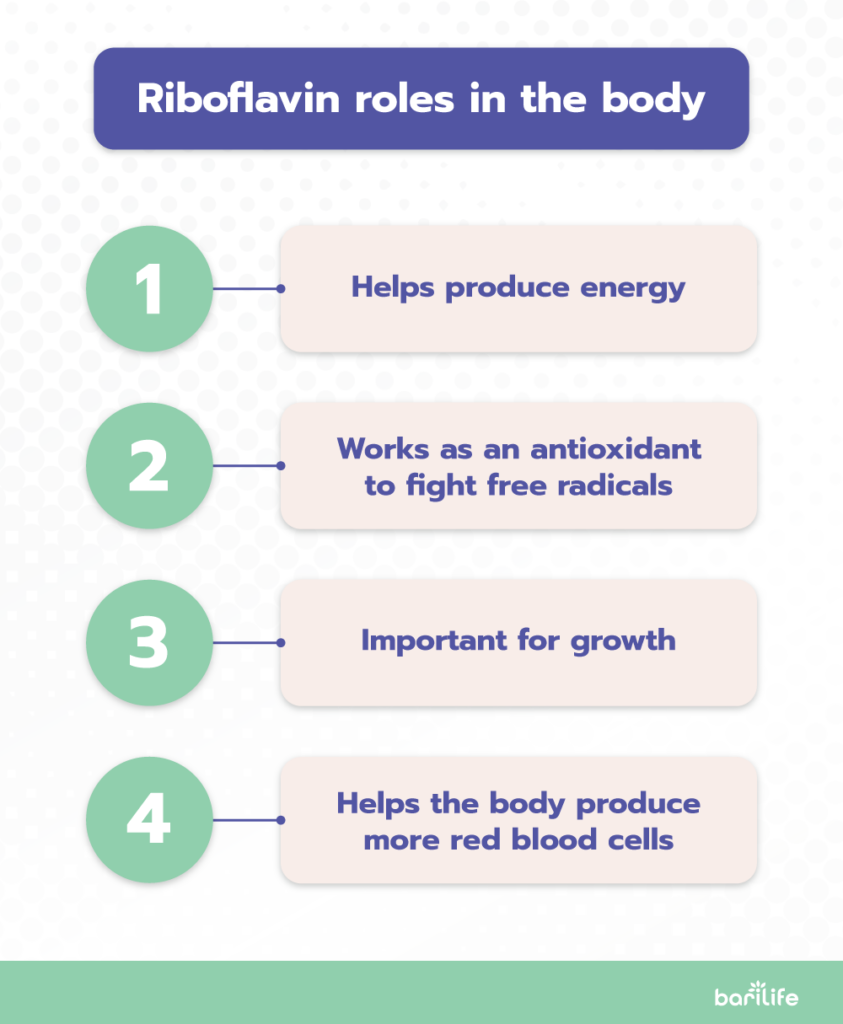
According to Oregon State University’s Linus Pauling Institute, Riboflavin has shown promise in reducing the risk of various diseases. For example, one study found that those with the highest amount of Riboflavin intakes were at a significantly decreased risk for the development of age-related cataracts. Some studies have also shown positive results in terms of reducing migraine headaches with supplementation of Riboflavin.
Riboflavin is naturally found in foods such as eggs, organ meats (kidney and liver), lean meats, and milk, according to the National Institutes of Health Office of Dietary Supplements. Other sources of Riboflavin include green vegetables, and, in certain countries such as the United States, grains and cereals which have been fortified.
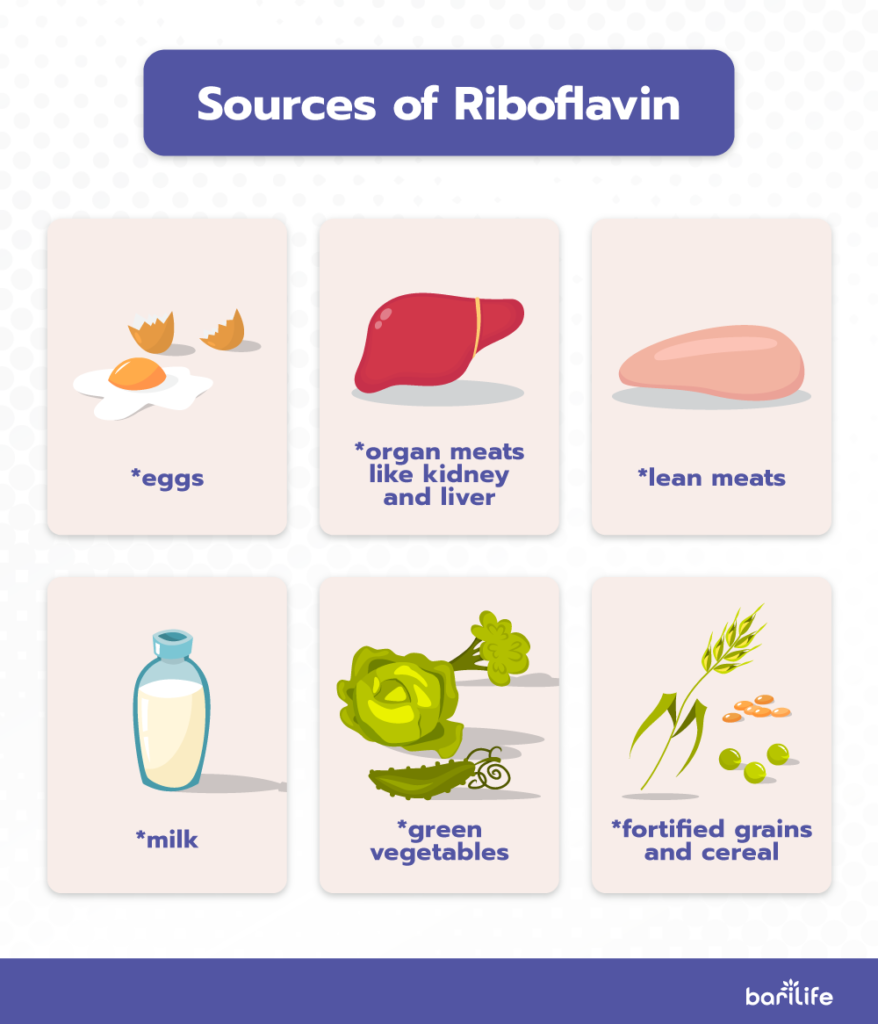
Something interesting to note is that foods that have been boiled lose about two times as much Riboflavin as when they are boiled or microwaved.
What are the guidelines for Riboflavin?
The American Society for Metabolic and Bariatric Surgery (ASMBS) has not set a recommendation for Riboflavin intakes for individuals who have undergone a laparoscopic adjustable gastric band procedure, a Roux-en-Y gastric bypass, a sleeve gastrectomy, or a biliopancreatic diversion/duodenal switch.
According to Harvard’s T.H. Chan School of Public Health, a Recommended Dietary Allowance (RDA) level for Riboflavin has been set. For adult males or females over the age of 19, it is recommended to take 1.3 mg or 1.1 mg of Riboflavin per day respectively. For individuals who are pregnant, the recommendation increases to 1.4 mg per day, and for those who are lactating, it is 1.6 mg daily.
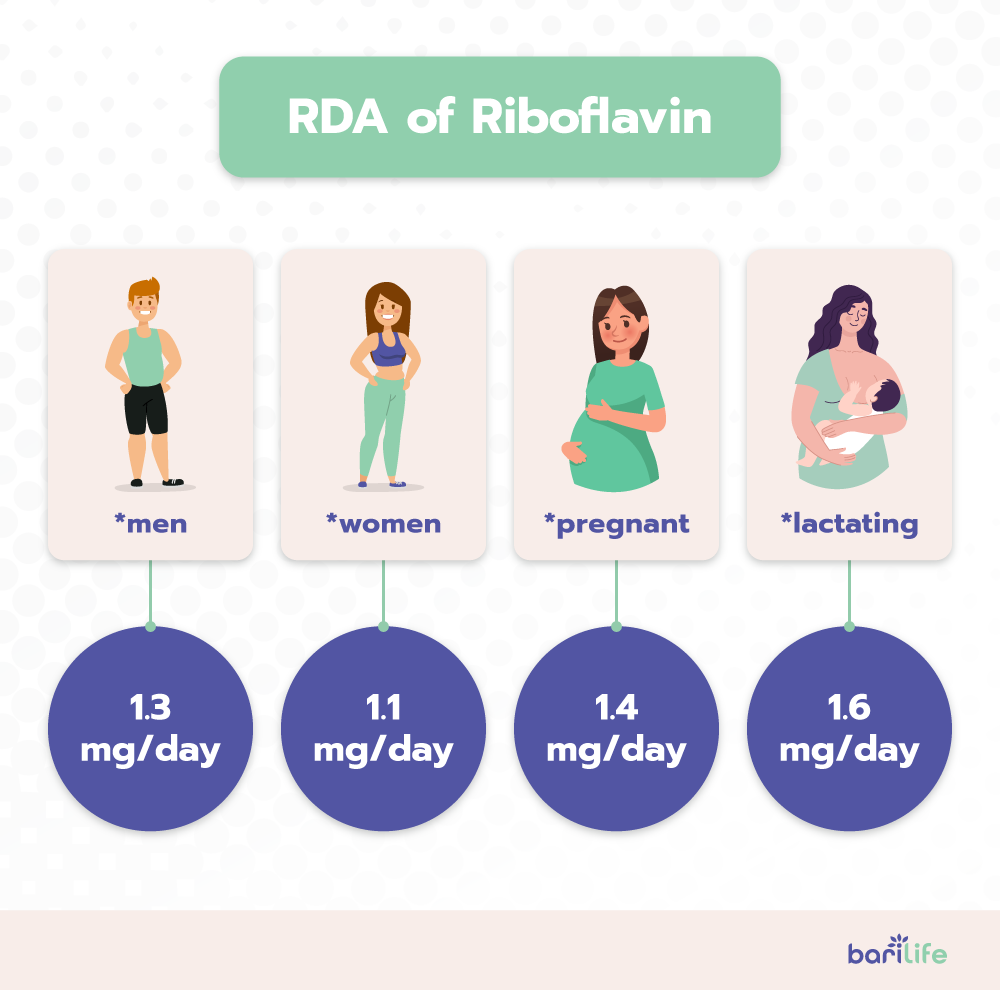
Because Riboflavin is a water-soluble vitamin, the risk of toxicity is extremely low. This is because, similarly to other B-complex vitamins, any excess Riboflavin that you ingest will simply pass through your body and be released through your urine. In fact, according to Harvard’s T.H. Chan School of Public Health, a toxic level of Riboflavin has not been observed from food sources or supplements.
Something interesting to note is that, if you ingest a large amount of Riboflavin, it can cause your urine to turn bright yellow or orange.
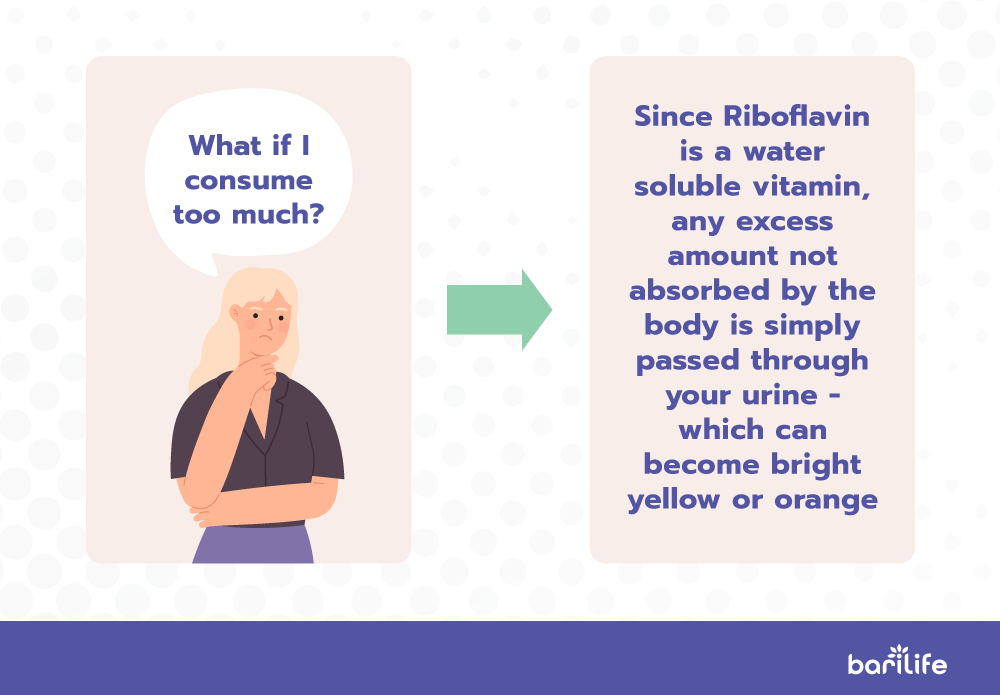
What about Riboflavin deficiency?
According to Oregon State University’s Linus Pauling Institute, the risk of Riboflavin deficiency is fairly low. This is especially the case in the United States, where we typically eat a diet rich in Riboflavin-containing foods such as meat and grains. In fact, according to the National Institutes of Health Office of Dietary Supplements, data from the 2003-2006 National Health and Nutrition Examination Survey (NHANES) showed that less than 6% of the population of the United States had Riboflavin intakes that fell below the recommended amount.
However, it was noted that some groups of people may be more likely to be deficient in Riboflavin. This includes those who are vegetarian athletes, women who are pregnant and lactating, people with chronic alcohol consumption, and those who are vegan or drink very little milk.
According to Harvard’s T.H. Chan School of Public Health, symptoms of Riboflavin deficiency include:
- Cracked lips
- Sore throat
- Mouth or throat swelling
- Swollen tongue
- Hair loss
- Rash
- Anemia
- Red and itchy eyes
- Cataracts
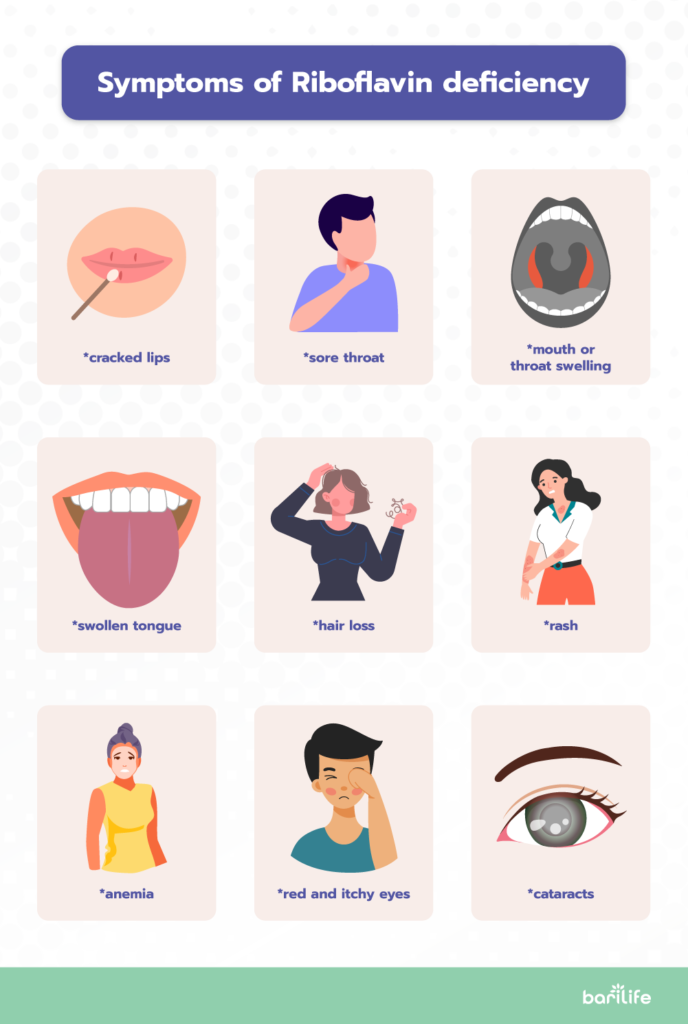
If you are experiencing any of these symptoms, it is important to speak with your primary care provider as soon as possible to determine if further testing or supplementation is necessary.
In summary
Riboflavin helps our bodies to produce energy and fight cell and DNA damage. It may also help reduce migraines, as well as the risk of age-related cataracts. While deficiency of Riboflavin is very rare, it is important to ensure that you do not develop a deficiency.
Taking a multivitamin that has the recommended dose of Riboflavin is a simple and easy way to ensure that you do not develop a deficiency, which can lead to rash, hair loss, sore throat, or itchy eyes, among other symptoms.
Bari-Life multivitamins contain 100% of the recommended daily value for Riboflavin, along with all of the other vitamins and minerals your body requires. Visit the vitamins section of our website to browse all of our offerings and choose the best vitamin for you.



What are your tips and tricks to post-bariatric success?